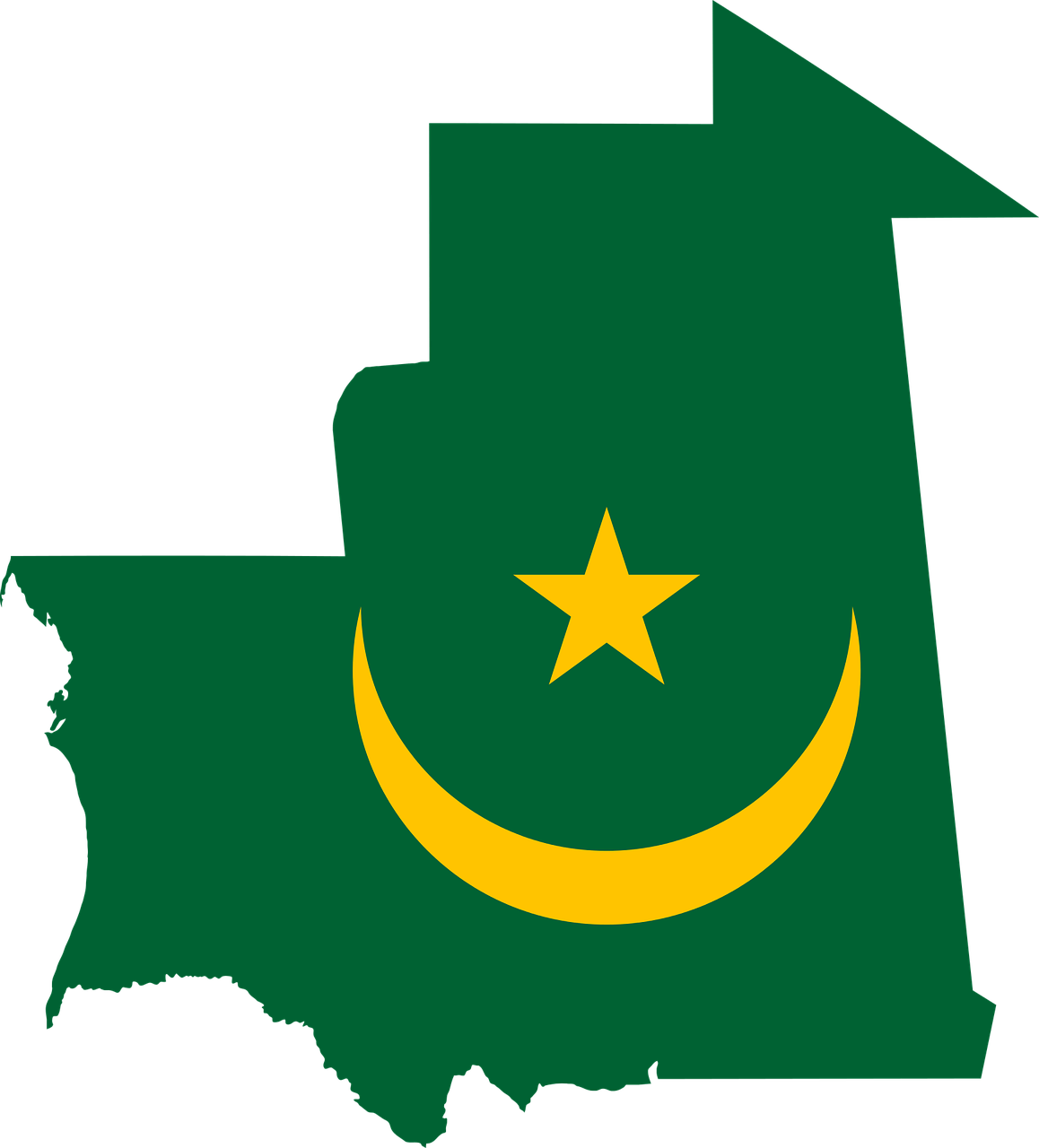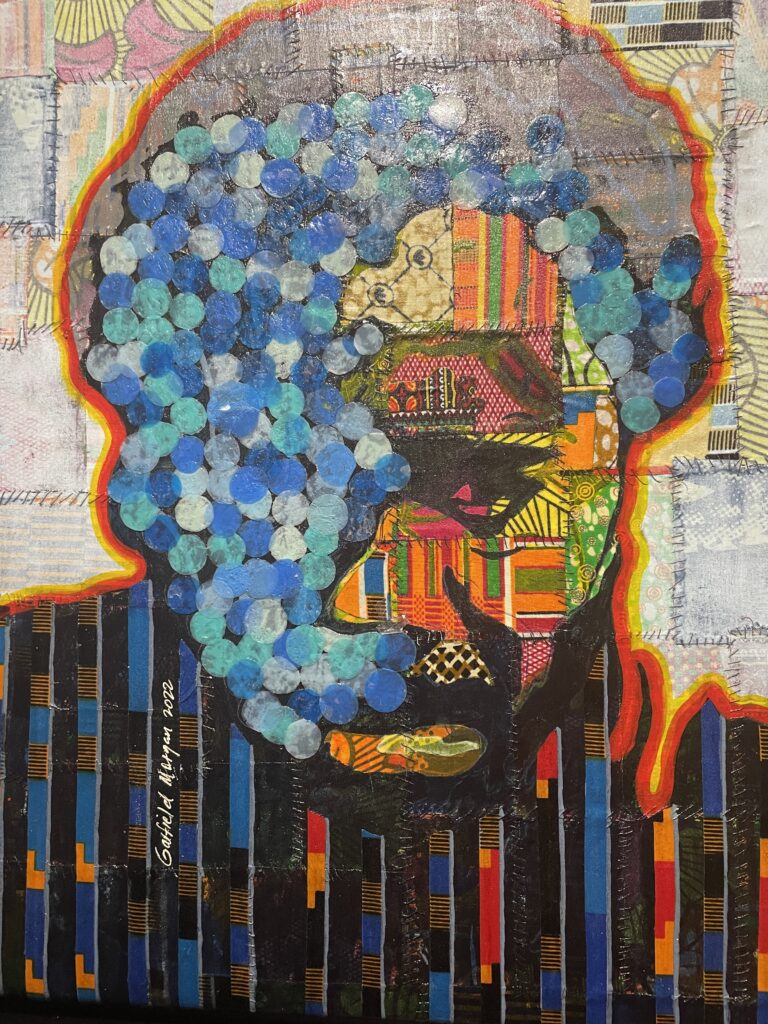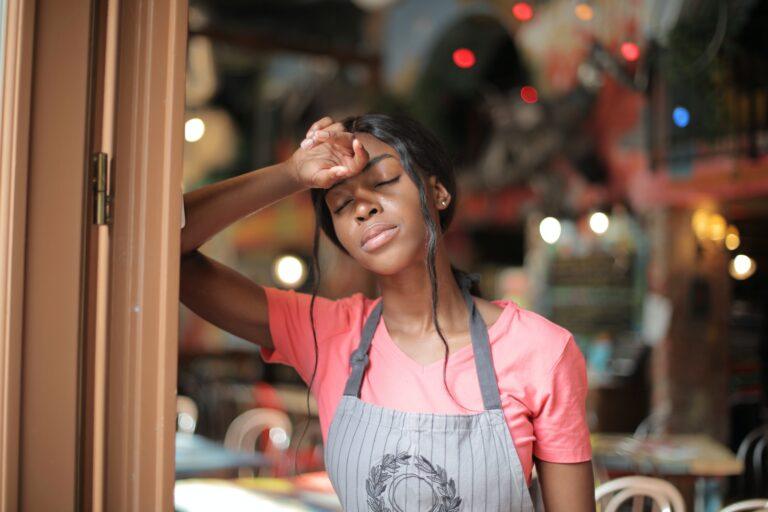Mauritania: The last stronghold of modern slavery

Modern slavery, synonymous with human trafficking in most cases, is a phenomenon related to poverty, the sex trade and decisions made by women to escape hardship in areas like Eastern Europe and Africa. The case of Mauritania stands out. Because of the pride and honour associated with that part of Africa, African civilizations and Blacks in the diaspora gladly associate themselves with the area of the Bight of Guinea which is today’s Guinea, Mali, Sierra Leone, etc., the Futa Jalon area in general and Mauritania is close to that location. It is, therefore, heart-wrenching to know that some Mauritanians undergo conditions as atrocious as those experienced by slaves who were shipped to the Americas by Europeans.
Mauritania, a former French colony in West Africa, has a population of 3.4 million people. It is situated in the Sahel and the Sahara (mostly the Sahara Desert). The country’s rich mineral resources do not contribute to the betterment of population’s living conditions. These words from an analyst succinctly capture the general scenery in Mauritania and also introduce the issue of slavery in the country. “Mauritania feels stuck in time in ways both quaint and sinister. It’s a place where camels and goats roam the streets alongside dented French sedans where silky sand dunes give the land the look of a meringue pie topping; where desert winds play with the cloaks of nomadic herdsmen, making their silhouettes look like dancing flames on the horizon; and where, incredibly, the nuances of a person’s color and family history determine whether he or she will be free or enslaved and in Nouakchott, the country’s seaside capital city, concrete buildings are scattered on the Sahara like Legos in a sandbox”.
Slavery in Mauritania surprises us since it is difficult fathom that the practice persists in that country. This phenomenon stems from skin colour, in a situation where light-skinned persons are likely to “lord” it over the dark-skinned ones. Skin colour is, therefore, one of the roots of slavery in Mauritania. The practice of the injustice, the forms it takes, the exact trauma and cruelty the slaves go through and what the future has in store for the Mauritanian slaves sets them apart from the victims of chattel slavery to some extent. The skin colour factor can be explained thus. The white Moors, lighter-skinned Berber people who speak Arabic have traditionally owned slaves. They are the “power class” and control more wealth than any other group. The black Moors, darker-skinned people, have historically been enslaved by the white Moors. They are originally from sub-Saharan Africa and have taken on many aspects of the Arab culture of their masters. Black Africans are the country’s other darker-skinned people and come from several ethnic groups, including the Pulaar, Soninke and Wolof. Finally, the Haratine are generally seen as “freed slaves”. An estimated 10 to 20 per cent of Mauritania’s 3.4 million people are enslaved — in “real slavery” as reporters often stress, and Mauritania was the last country to abolish slavery in 1981, approximately 120 years after Abraham Lincoln issued the Emancipation Proclamation in the USA.
The genesis and unfortunate continuation of slavery in the country can be captured in these terms. From the year 200 (approximately) to the 1900s, Arab slave traders, in the region that would become Mauritania, captured darker-skinned people from sub-Sahara. In 1905, the colonial French administration declared an end to slavery in Mauritania, but that abolition never took hold, however, in large part because of the vastness of the country. In 1961, independent Mauritania adopted a new constitution abolishing slavery but that effort equally had little impact.
The problem is very complicated because of a general denial. “All people are free in Mauritania and this phenomenon (of slavery) no longer exists”, is the answer that the authorities throw to reporters. Journalists can be arrested or ordered out of the country without their notebooks and footage if caught reporting on slavery or if found speaking to an escaped slave. The following illustrations give the reader an idea of some of the dimensions of slavery in that country. Most of them are extremely cruel and, sometimes, simply inhumane. I share the story of Moulkheir Mint Yarba’s baby, that of Abdel who picked his slave when he was seven years old, and the initiative of Bouboucar Messaoud, the son of slaves and co-founder of an abolition group.
Moulkheir Mint Yarba is a female slave who returned from a day of tending her master’s goats out on the Sahara Desert to find something unimaginable. Her baby girl, barely old enough to crawl, had been left outdoors to die. She saw her child’s lifeless face, eyes open and covered by ants, resting in the orange sands of the Mauritanian desert. The master who had raped Moulkheir to ‘produce’ the child committed the act because he wanted to punish his slave. He told her she would work faster without the child on her back. When the mother asked if she could take a break to give her daughter a proper burial, her master’s reply was, “Get back to work. Her soul is a dog’s soul”. The mother later told anti-slavery activists, “Later that day, at the cemetery, we (certainly she and other slaves) dug a shallow grave and buried my child in her clothes, without washing her or giving her burial rites. I only had my tears to console me.” It would help to know that Moulkheir was born a slave in the northern deserts of the country, where the sand dunes are pocked with thorny acacia trees. As a child, she talked more frequently with camels than people, spending days at a time in the Sahara, tending to her master’s herd. She would be up before dawn and toiled into the night, pounding millet to make food, milking livestock, cleaning and doing laundry. She was not paid for her work. “I was like an animal living with animals,” she said.
Abdel, a 47-year-old man, was seven when he selected a boy with “skin the color of coal” to be his personal slave for life. The young slave owner made the choice at his circumcision ceremony; he could have picked anything as a gift for this rite of passage into adulthood – a goat, candy, or money. But Abdel wanted the dark-skinned boy and justifies his action, “It was as if I were picking out a toy, there were all those stories about him that made me laugh. So for me, he was an interesting and comic figure. It’s normal that I chose him”.
The hope comes with people like Boubacar Messaoud, a descendant of slaves who miraculously forced his way to school where readings transformed his life. With other activists, they developed a method for fighting slavery, the SOS Slaves. They remain convinced that the following factors contribute to the persistence of slavery: the government’s reluctance to deal with the matter, the geography of the country, since it is a “vast and almost empty land” in the Sahara and that makes it difficult to enforce laws, including antislavery laws. Poverty is another reason since 44 per cent of Mauritanians live on less than 2 USD a day so both slaves and slave owners are poor and illiterate. Religion is also a factor because Islam, the predominant religion, has imams, especially in rural areas, who keep preaching that slavery paves the way to heaven. Racism and the caste system that comes with it contributes to keeping dark-skinned people at the bottom in society and finally the lack of education cannot be excluded since many slaves have been brainwashed to such an extent that they refuse to believe that they are enslaved.
This is an atrocious fact that obviously mars the image of a continent that is already suffering from a representation as “the concentration of appalling things”. Transparency should prevail and human rights must be vigorously enforced for the eradication of slavery in present-day Mauritania.
Moussa Traoré is Associate Professor at the Department of English of the University of Cape Coast, Ghana.







In today’s article I like the quote on the description of Mauritania. It is that poetic.
I like the description of dunes, the desert, movement of the inhabitants with their silhouettes as dancers in the desert and it’s background of orange sand. Very poetic.
The writer of the book or stuff you took it from is damn good.
But on the article itself on slavery in Mauritania why it’s not ending and the reason blamed on the vastness of the nation it a tiny bit of the issue.
All the other points especially the lack of will power by the leaders to crack it open and end it carry more weight and are the main reasons why it’s still persisting in the country.
Mauritania isn’t large or vast than Antarctica if the population density ratio is the reason for the argument, but there aren’t slavery there for example.
In my opinion the people or leadership(s) given power to steer the affairs of the nation aren’t just taking steps to end it. They are doing nothing. The reason is they are the benefactors more than anyone.
The woman who child was killed by her slave master before she could return from herding the camels etc could be any of those in leadership. It’s pathetic calling her child a dog too.
The UN and other organizations the nation is a member of could all sanction the leaders and I tell you slavery would end there like a hunger that is being fought with big balls of banku.
Merci pour ce beau t’article plein d’informations, d’émotions et affreux.
This is an eye-opener.Thanks for the enlightenment. I hope authorities expedite actions to eradicate this barbaric act.
Good morning. I’m melancholic and pained to hear this story of Mauritania!
In this 21st Century of ours you still clinged to such barbaric acts?
Let me first put it that, there is vanity on the part of the authorities in Mauritania. Tell me, what is the use selling someone out and still remain poor? There’s no sense in this!
Well, there is a little bit of veracity on the part of the sex traders. The geography of that part of the country is not favourable for livelihood. I don’t blame them to some extend.
Let’s look into the doom fools of Mauritania ( the authorities). Why would they be maltreating journalists who try to rescue them?
As I said some days past, vanity, poverty and slavery are the reason the whites dominate Africa.
Let us still assume without admitting that, Mauritania is a democratic country, don’t they have appropriate structure of governance? It appears, the issue of human rights is thrown to the dogs.
The government machinery of Mauritania should sit up!
I’m very sure that,there should be an educational framework by now in Mauritania, and therefore,they cannot be tightening the noose around their neck all in the same of lack of education,NO!
The president and his cohorts must try to abhor if not all but the modern day slavery.
The harassment of journalists and sex works are in existence simply because of the inefficacy of the judicial system.
This really stings every well meaning person’s heart.
I’ll conclude by saying that, Mauritanian is disadvantaged because of her geographical location and therefore, the international community must hear this through the journalists. Probably, collectively,these disgusting practices would be a thing of the past.
I’m very sad all honesty about Mauritanian.
Thank you.
…… Sakara Mumuni……
Thank you for this sharing.
We must fight slavery in Africa.